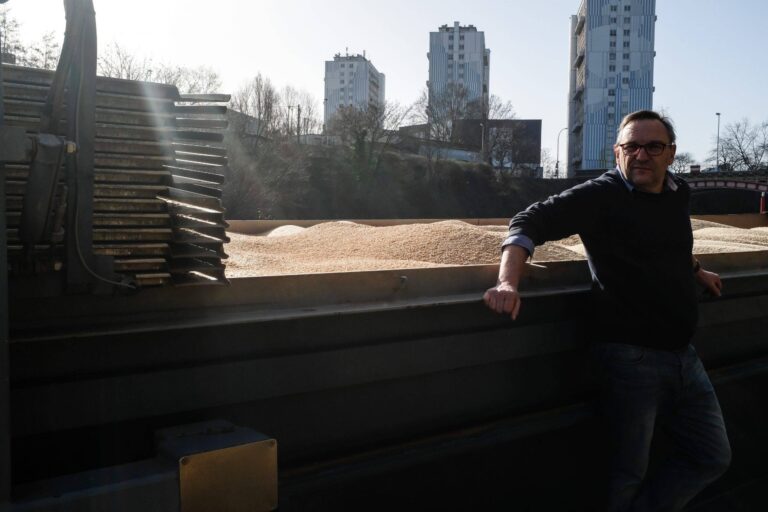The Covid-19 crisis suspended time in 2020, shedding light on the workers who are essential for society and questioning the relevance of many modern-day jobs.
After working in consulting for a year, Paul decided to leave his “bullshit job” in order to study economics and sociology and later pursue a career in research on a subject of particular significance to him: work.
The broken dream of the entrepreneurial mindset
A student who takes the business school entrance exam has no idea what the job he will be doing later on will look like. Paul explains that before getting into his business school, his interest in marketing was probably solely based on what he might have seen in a movie. In reality, he had no idea what he would be doing when he graduated. “You invested time, work and money, says Paul, but you were somewhat lied to about what you would get out of it: a shitty job, 5 weeks of vacation a year, and depression.” The vague entrepreneurial dream is shattered by the absurd reality of filling out slides all day long. When Paul started working as a consultant in the banking sector, he developed feelings of incomprehension and fascination towards his colleagues’ or classmates’ constant and feigned enthusiasm for their work, even though their jobs were similar to his.
The injunction to be happy at work
It didn’t take him long to realize that he didn’t like his work. In Paul’s words, you don’t choose whether you like it or not. It is the injunction to be happy at work that we have all internalized, which makes it taboo to talk negatively about it in a candid way.
“The comments of the friends who try to convince you,” says Paul, that “[you’re] not miserable at all” or that “it’s okay, [if you] invest some more effort [you] will get into it,” echo this obligation. Paul talks about the loneliness he felt in the face of the confusion of his closest friends. Their encouraging speeches betrayed the impulse to always be positive about everything, and while Paul recognizes his privilege, he refuses to be satisfied with a job only for the social prestige it brings him. As he opened his eyes to what he calls the matrix, Paul explains that, feeling quite alone, he talked a lot about it in hopes of awakening the awareness of those around him.
However he realized that a significant number of young working people share his feelings of disconnection and disillusionment with work. Following the broadcast of the first episode of the podcast “‘Bullshit jobs’: The Millennial Blues”, he received a lot of positive responses on Ndflex, “Neurchi de Flexibilisation du Marché du Travail”, a Facebook group that he created while he was drowning in boredom at the office. Today, Ndflex gathers a whole community of young professionals who parody the world of work by creating memes.
A race against time: paying back loans and finding one’s place.
After graduating from business school, outstanding debts await the graduates. In this setting, the alternative of reorienting oneself and starting over with new studies is more time to buy. It’s a possibility that is unlikely to be fulfilled anytime soon for most of them. Many find themselves having to pay off their debt for several years. So they take a job that enables them to do so, even if it’s a “bullshit job”.
Even in a situation where one comes from a family with the necessary resources, as in Paul’s case, leaving the financial and social comfort provided by these types of jobs is a bold gamble under social pressure. Enduring “bullshit jobs” allows one to secure a place in society, to receive a fixed salary, to settle down and conceive a future. “If you get up from your musical chair, you’re really not sure if you’re going to be able to sit down again. In a purely rational way, you’re better off being satisfied with your position rather than putting yourself into play.” At the same time, there is a risk of never being able to get out of this long-term commitment.
Help us tell the world to you !
Frictions is launching its club : by supporting Frictions, you’ll be supporting a community of authors and journalists who tell the world through intimate stories!

Work as a safety net
Before him, his father was a senior executive in a communications agency. His path is similar to that of Paul. During his entire career, he experienced the bitter reality of a well-paid but boring job with no actual utility. Nevertheless, when he saw his son embarking on the same path, he did not prevent him from doing so. On the contrary, he even encouraged him. Paul is still puzzled by this paradox. His role as a parent was also to ensure that his child had a good academic level, got into a good school and thus secured his future with a prestigious diploma in order to “not end up in the streets”. His choice to carry on with his job was also what guaranteed Paul’s well-being and enabled him to continue his studies.
The illusory pursuit of the “dream job”.
Getting a job in a major office and evolving in the field until reaching a steady and respected position is what many young people had imagined when they entered the working world. What follows are years in a distressing job, which were not initially planned, but which are accepted and endured in the desperate hope of receiving a raise and getting a promotion one day. Paul has swept aside the idea of conforming to this hierarchical system which he considers to be illusory and absurd. “Resignation is orgasmic,” says Paul, “especially for good students.”









